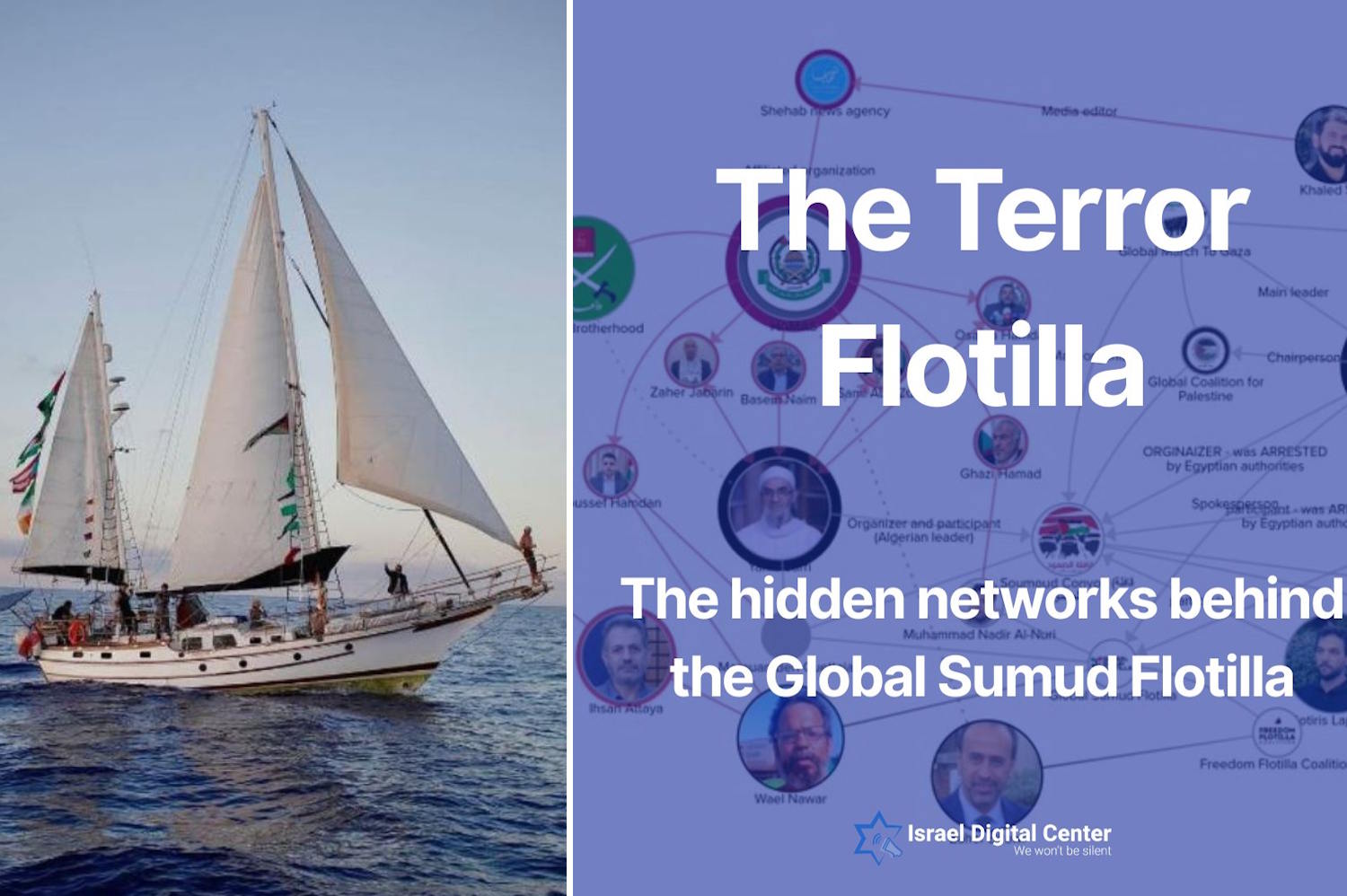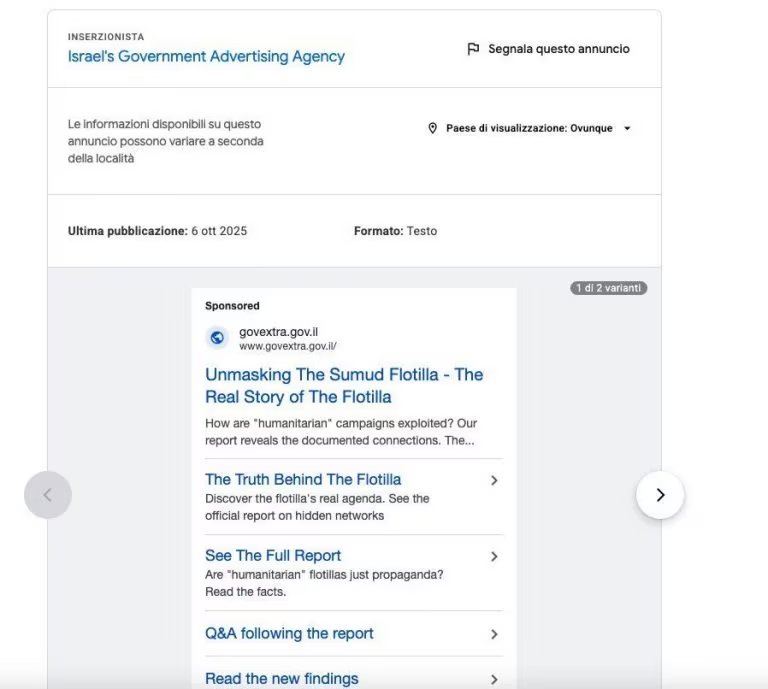Israel used Google ads and targeted digital campaigns to discredit humanitarian activists and Greta Thunberg, manipulating online narratives to influence global opinion during key diplomatic talks.

@Flotilla – @Israel Digital Center
An investigation by Fanpage.it has uncovered a large-scale online propaganda operation orchestrated by the Israeli government. According to the report, an agency tied to Benjamin Netanyahu’s administration purchased Google ads to push targeted content aimed at discrediting the Global Sumud Flotilla and Greta Thunberg, labeling them “terrorists” or pawns of Hamas.
The campaign was active across several European and North American countries, forming part of a broader strategy to rewrite the narrative of the conflict during sensitive diplomatic moments and to delegitimize civilian solidarity initiatives toward Gaza. Targets included Austria, France, Germany, Canada, Spain, and Italy.
The flotilla stopped and criminalized
The Global Sumud Flotilla is a civilian international mission sailing toward Gaza, carrying activists, journalists, and politicians with the goal of delivering humanitarian aid. Israeli forces intercepted the boats in international waters, far beyond their legal jurisdiction, and forcibly transferred the passengers to Israeli territory.
Many participants later denounced abuse and violence during their detention in the Ketziot and Saharonim prisons, deep in the Negev desert. The Israeli government dismissed these testimonies as “fake news,” while simultaneously launching an online counter-narrative portraying the flotilla’s members as terrorists who had entered the country illegally.
Israel’s Diaspora and Antisemitism Ministry reports that the Global Sumud Flotilla – joined by activist Greta Thunberg -…
Posted by Israel Digital Center on Wednesday, September 17, 2025
A massive advertising push
Fanpage’s investigation found that between October 5 and 6, the official Israeli domain govextra.gov.il funded a Google ad campaign promoting a report titled “The Flotilla of Terror.”
Using Google’s Ads Transparency Center, which tracks political advertising, the journalists were able to reconstruct the strategy in detail. There were three separate ad campaigns, all promoting the same report, aimed at users in Europe and North America.
By purchasing keywords such as “Global Sumud Flotilla” and “Greta Thunberg,” the Israeli government ensured its sponsored content appeared at the top of search results. In practice, money was enough to dominate visibility and spread state-crafted messages disguised as regular Google ads.

@Google Ads-Fanpage
Accusations against the flotilla and Greta Thunberg
The Israeli document claimed there were no significant humanitarian supplies on board—an allegation contradicted by photographic evidence, journalists’ accounts, and independent observers. Humanitarian groups documented shipments of medical supplies, food, and essential goods that were clearly visible on the vessels.
Another claim was that the flotilla’s leadership had links to Hamas and had selected Greta Thunberg as “cover.” This accusation lacked any supporting evidence but fit neatly into the political delegitimization strategy.
Israel’s National Security Minister Itamar Ben Gvir went further, calling the activists “terrorists” on X and expressing his hope that they would spend months in Israeli detention. It was a deliberate move to criminalize civilian missions and deter future solidarity efforts.
A structured propaganda strategy
Behind the campaign was the Israeli Government Advertising Agency (IGAA), which handles communication for multiple public bodies. The agency recently signed a $45 million (about €41.8 million) deal with Google to run advertising on YouTube and Google Display & Video 360.
This is not an isolated case. Fanpage pointed out that the same playbook has been used to attack UNRWA, the United Nations, and prominent critics of Israeli policies in the occupied territories. Over recent months, online platforms have been flooded with AI-generated videos, fake news reports, and targeted ads that are increasingly hard to distinguish from authentic journalism.
In some instances, the Israeli agency even promoted articles from Italian outlets such as Avvenire without their knowledge, further blurring the line between legitimate reporting and state propaganda.
Manipulating the web to rewrite the conflict
The investigation paints a picture that is both clear and disturbing: Israel is using the same digital marketing tools that sell products to influence global public opinion. Sponsored search results, coordinated social media campaigns, manipulated content, and precision-targeted disinformation have become political weapons aimed at undermining civil movements, activists, and humanitarian missions.
This new wave of media offensives—blending digital propaganda with search engine manipulation—is unfolding at a strategic moment: the negotiations in Sharm el-Sheikh. For Netanyahu’s government, controlling the narrative has become a top diplomatic priority.
Source: Fanpage
